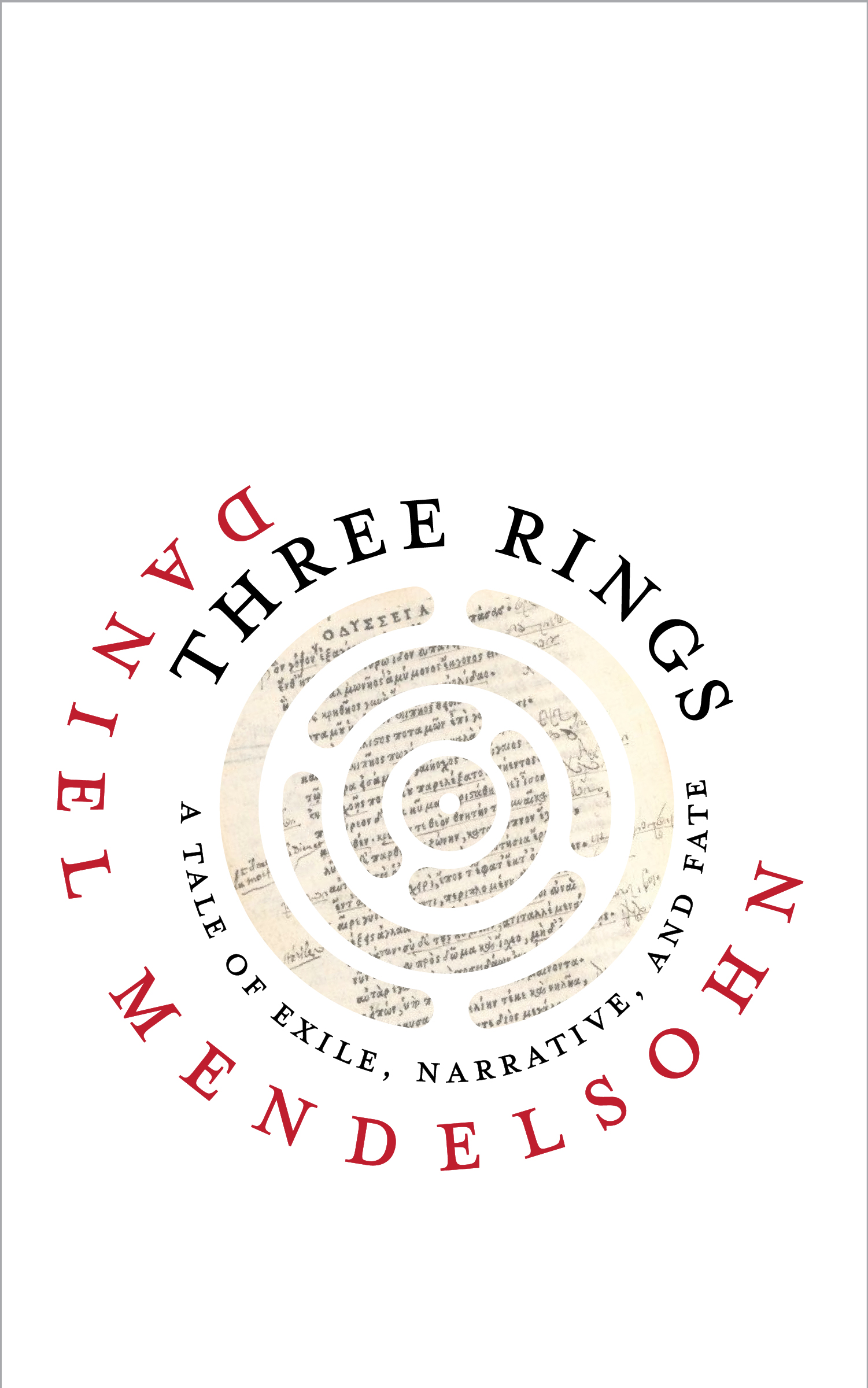
University of Virginia Press, 2020
|
THREE RINGS:A Tale of Exile, Narrative, and Fate
A profound meditation on the relationship of storytelling to history. In a book hailed as an “astounding Borgesian document of clarity and brilliance” (Sebastian Barry), best-selling memoirist and critic Daniel Mendelsohn pushes against the boundaries of genre as he explores the mysterious links between the randomness of the lives we lead and the artfulness of the stories we tell. Combining memoir, biography, fiction, history, and literary criticism, Three Rings weaves together the stories of three exiled writers who turned to the classics of the past to create masterpieces of their own—works that pondered the very nature of narrative. Erich Auerbach, the Jewish philologist who fled Hitler’s Germany and wrote his classic study of Western literature, Mimesis, in Istanbul…François Fénelon, the 17th century French archbishop whose ingenious sequel to Homer’s Odyssey, The Adventures of Telemachus—a veiled critique of the Sun King and the bestselling book in Europe for a hundred years—resulted in his banishment…and the German novelist W. G. Sebald, self-exiled to England, whose distinctively meandering narratives explore odyssean themes of displacement, nostalgia, and separation from home. Intertwined with these tales of exile and artistic crisis is an account of Mendelsohn’s struggles to write two of his own books—a family saga of the Holocaust and a memoir about reading the Odyssey with his elderly father—that are haunted by tales of oppression and wandering. As Three Rings moves to its startling conclusion, a climactic revelation about the way in which the lives of its three heroes were linked across borders, languages, and centuries forces the reader to reconsider the relationship between narrative and history, art and life.
PRAISE and REVIEWS
“In book after book he confirms that, in the cultural sphere, he is the successor of the already sorely missed George Steiner.” —Livres Hebdo (France)
“As always, the author’s voice blends authority with considerable warmth and charm, luring readers into his complex intellectual enthusiasms. Mr. Mendelsohn has honed a prose style that is nuanced yet clear, without a hint of pedantry, and one is always glad to learn what he has to teach…Grandeur and intimacy are the poles between which all ambitious writers suspend their work. There is a sense in both the “Odyssey” and in “Mimesis” that their authors are capable of reaching through time to speak companionably to every reader. Mr. Mendelsohn’s books are distinguished by this kind of approachability as well. “Three Rings,” a short but profoundly moving work, clings with tenacity to a belief in the regenerative power of literature.” —The Wall Street Journal
“This luminous narrative, in which the tales of each of Mendelsohn’s three chosen exiled writers appealingly intertwine, is about many things―memory, literature, family, immigration, and religion―and it ends where it began, with a “wanderer” entering “an unknown city after a long voyage. This slender, exquisite book rewards on many levels.” —Kirkus (starred review)
“Mendelsohn is a natural story-teller and he has managed to turn a multi-century saga of literary criticism and history into an immensely entertaining, readable, and short(!) book..if only more literary criticism (and scholarship, in general) were delivered this way, it would have a much greater audience and impact…Three Rings is a book you must read for yourself, to witness Mendelsohn as he unravels and lays bare the connections between Homer, Auerbach, Fénélon, Sebald, and others. In a way, it’s ironic that Mendelsohn relates so intimately with those who believe in the “irretrievability of the past,” because for him the stories of the past are vital to understanding the present. What he transmits so magically in Three Rings is his infectious passion for learning and sharing with others.” —Terry Pitts, Vertigo
“A fine study of digression, exile, and circularity. Mendelsohn’s talent with descriptive detail brings his work alive, such as repeated descriptions of Auerbach, while exiled in Istanbul, gazing through a palace window over the turquoise Sea of Marmara. Mendelsohn never fails to entertain as he takes the reader across thousands of years’ worth of literature and lives.” —Publishers Weekly
“Astounding. A Borgesian document of clarity and brilliance, a book about telling stories that wanders down the seeming two roads of the Hebrew tradition and the Classical, which, like Proust’s two ways, might turn out to be one way after all. Three Rings has the keeled force of a long poem.” —Sebastian Barry
“Classicist, historian, memoirist, cultural critic, wit—with consummate skill and the sharp, sympathetic eye of the poet Daniel Mendelsohn brilliantly combines these roles. Three Rings is a masterly exegesis and demonstration of digression as a high art.” — —Joyce Carol Oates
“Daniel Mendelsohn’s Three Rings is erudition, essayism, and memoir, made to dance together like a visible clockworks–or literary scholarship such as Ricky Jay might have practiced it onstage. This little book is ruminative, humane and gorgeously precise.” — —Jonathan Lethem
“Three Rings is a marvel. Mendelsohn does something more commonly found in the most ingenious writers of fiction – one thinks of Sterne, of Proust, of Umberto Eco, of Calvino – constructing an apparently (deceptively) gloriously willful narrative whose remarkable structure, whose extraordinarily wide-ranging exploration of seemingly unconnected writers in and of exile, whose susceptibility to the lure of the innocently unmotivated detail in a garden of forking paths, exemplify a profoundly moving argument about the construction of stories in a contingent world. No digression is ever certifiably a digression when individuals can at any moment be displaced by violent historical convulsions – the Trojan War, the expulsion of Jews and Muslims from Spain, the revocation of the Edict of Nantes, most terribly the Holocaust; Mendelsohn’s thought-provoking examination of the reworking of stories of wandering and exile, beginning with Homer, ending with Sebald, makes this exceptional work indispensable at a time when it is no longer possible to say ‘It couldn’t happen here, now, again.’” —Helen DeWitt
|
